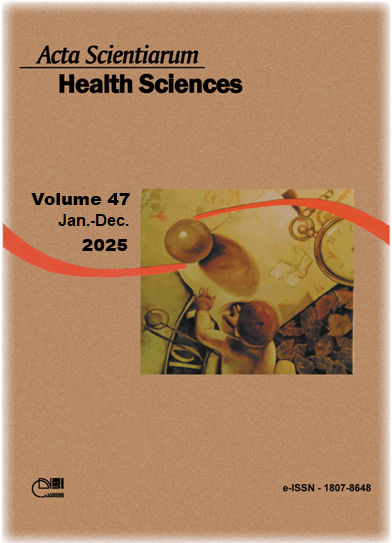Effects of associating linalool with nystatin and fluconazole against Candida albicans strains from vulvovaginal secretions
Resumo
Vulvovaginal candidiasis is one of the most common fungal infections in women, at some point in their lives affecting approximately 75% of this population. It is primarily caused by the fungus Candida albicans and can be triggered by many factors, such as antibiotic use, diabetes, pregnancy, and use of hormonal contraceptives. The current large increase in mycotic infections caused by C. albicans and frequent therapeutic failure of conventional antifungals, when added to the development of microorganism resistance has led to the need for antifungal studies on the capacity of monoterpenes. Monoterpenes present excellent microbicidal potential in addition to their capacity in combination therapies. Our work aimed to investigate the effects of associating the monoterpene linalool with the antifungal drugs nystatin and fluconazole against C. albicans strains from vulvovaginal secretions. In vitro microdilution assays were conducted in RPMI-1640 broth, and the Checkerboard method applied, using amphotericin B as a control. The study results indicate linalool’s strong anti-C. albicans activity and synergism with fluconazole. Linalool presented a fractional inhibitory concentration index (FICI = 0.25) against C. albicans ATCC 76485. However, linalool in combination with nystatin resulted in an indifferent effect. Yet linalool presented antifungal potential, as its association with fluconazole reversed C. albicans resistance in in vitro assays.
Downloads
DECLARAÇÃO DE ORIGINALIDADE E DIREITOS AUTORAIS
Declaro que o presente artigo é original, não tendo sido submetido à publicação em qualquer outro periódico nacional ou internacional, quer seja em parte ou em sua totalidade.
Os direitos autorais pertencem exclusivamente aos autores. Os direitos de licenciamento utilizados pelo periódico é a licença Creative Commons Attribution 4.0 (CC BY 4.0): são permitidos o acompartilhamento (cópia e distribuição do material em qualqer meio ou formato) e adaptação (remix, transformação e criação de material a partir do conteúdo assim licenciado para quaisquer fins, inclusive comerciais.
Recomenda-se a leitura desse link para maiores informações sobre o tema: fornecimento de créditos e referências de forma correta, entre outros detalhes cruciais para uso adequado do material licenciado.
























5.png)







